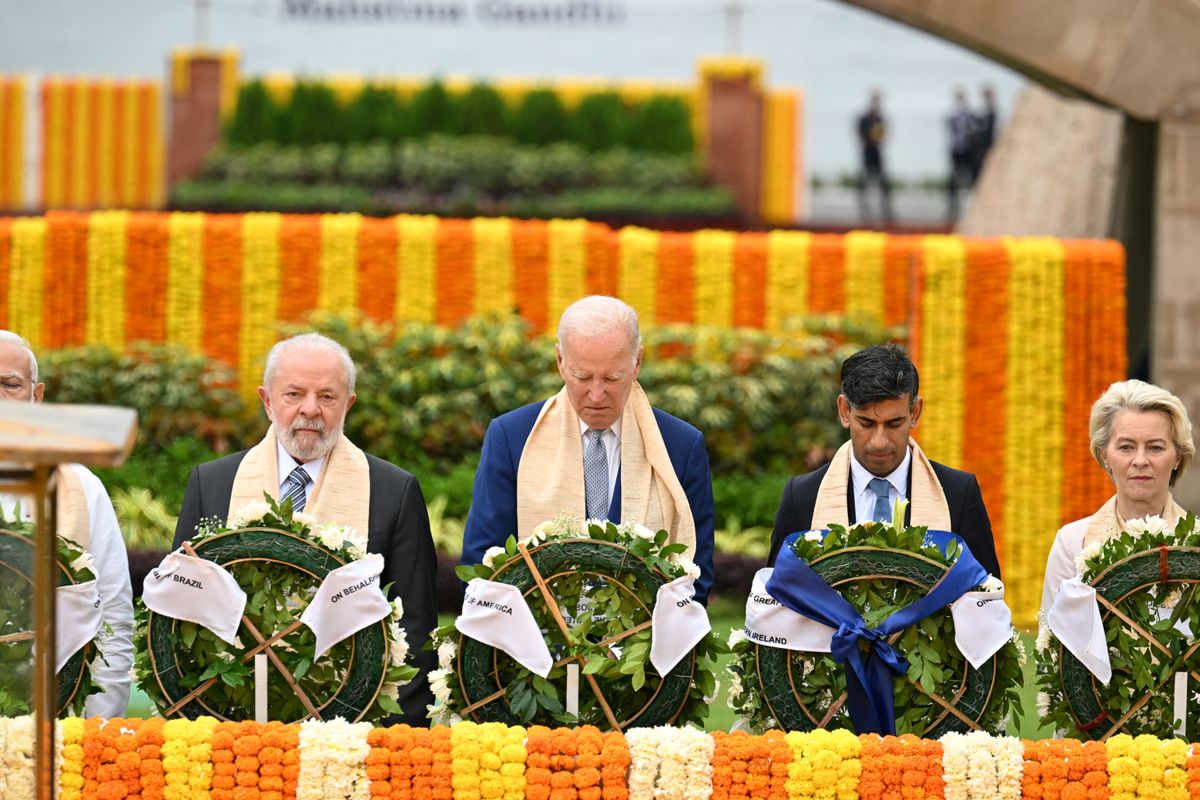What went down at the G20 Summit in New Delhi?
This year’s G20 Summit in New Delhi was pretty eventful, with a few different international breakthroughs taking place during the conference over the weekend.

A few minutes every morning is all you need.
Stay up to date on the world's Headlines and Human Stories. It's fun, it's factual, it's fluff-free.
This year’s G20 Summit in New Delhi was pretty eventful, with a few different international breakthroughs taking place during the conference over the weekend. Leaders and major officials from the world’s 20 largest economies met up to hash out international issues, and they actually did seem to figure some stuff out and make a couple of big decisions.
One of those was to officially admit the African Union to the group. In his opening speech on Saturday, Indian Prime Minister Narendra Modi officially invited the bloc (repped by chair Azali Assoumani) to join the G20 as a permanent member. This means that 55 different African countries will now be fully involved in the G20 (49 right now, as six member states have been suspended from the union because of recent junta-related coups).
“This membership, for which we have long been advocating, will provide a propitious framework for amplifying advocacy in favour of the continent and its effective contribution to meeting global challenges,” AU commission head Moussa Faki Mahamat posted on X after this announcement.
Later on, US President Joe Biden made news by unveiling a sweeping international infrastructure project. The idea behind the project is to effectively connect India, the Middle East and Europe with railways, shipping lines, high-speed data cables and energy pipelines. The US, UAE, Saudi Arabia, Israel and Jordan are all working on this plan.
"It's a big deal. It's a really big deal. This project will contribute to making the Middle East a more prosperous, stable and integrated region," Biden said.
When it came to building bridges, China also spread a message of collaboration, especially with Europe. Although President Xi Jinping couldn’t make it to the conference, Premier Li Qiang stepped up to invite Europe to “unite and cooperate” with China to strengthen their ties and keep things stable.
"Risk prevention does not preclude cooperation; interdependence should not be equated with insecurity," Li told EU Commission President Ursula von der Leyen.
In terms of economic headway, the G20 member nations decided to endorse a real regulatory framework for crypto based on recommendations from the global Financial Stability Board. But, even with these regulations being adopted, bitcoin and crypto probably won’t be embraced as official currency or legal tender, and central banks still aren’t likely to hold them.
The Summit wrapped up on Sunday with a joint Leaders' Declaration that aimed to compromise by calling on states not to use force to claim territory (a direct reference to the ongoing war in Ukraine) without actually condemning Russia by name.




Comments ()